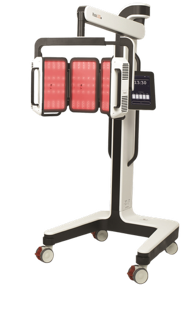The last patient in Biofrontera’s Phase 3 study of Ameluz and RhodoLED PDT in superficial basal cell carcinoma (sBCC) completed their one-year follow-up visit in December of 2024.
The double-blind, randomized, placebo-controlled, multi-center ALA-BCC-CT013 study evaluated safety and efficacy in 187 patients with one or more clinically and histologically confirmed superficial BCCs. They each received one cycle of two PDT treatments (either Ameluz-PDT or placebo-PDT) given 1-2 weeks apart. Lesions that were not completely resolved after three months were retreated. Biofrontera announced highly statistically significant results for all primary and secondary endpoints in October 2024.
The U.S. Food and Drug Administration has advised Biofrontera to submit the supplemental New Drug Application (sNDA) with one-year follow-up data, expected in Q3 2025. While 1-year data will support the FDA submission, the superficial BCC lesions will in total be followed up for five years.
“We were delighted with the highly statistically significant results for the primary and secondary endpoints that we communicated last year,” says Dr. Hermann Luebbert, CEO and Chairman of Biofrontera Inc., in a news release.“The completion of the 1-year follow-up is a crucial milestone in our path to an FDA submission in 2025 and potentially expanding our label to the treatment of a cutaneous malignancy. It demonstrates our continued investment in PDT and supports our vision of partnering with the dermatology community to improve patient care.”.
“We routinely use PDT in our institution for the treatment of actinic keratoses” adds Shane Chapman, MD, MBA. Chair of the Department of Dermatology at Dartmouth Hitchcock Medical Center and the Geisel School of Medicine at Dartmouth in Lebanon, NH, and an investigator for ALA-BCC-CT013. “We were impressed with the results of the 12-week data and I look forward to being able to offer Ameluz-PDT as a treatment option for my patients with sBCC”.


